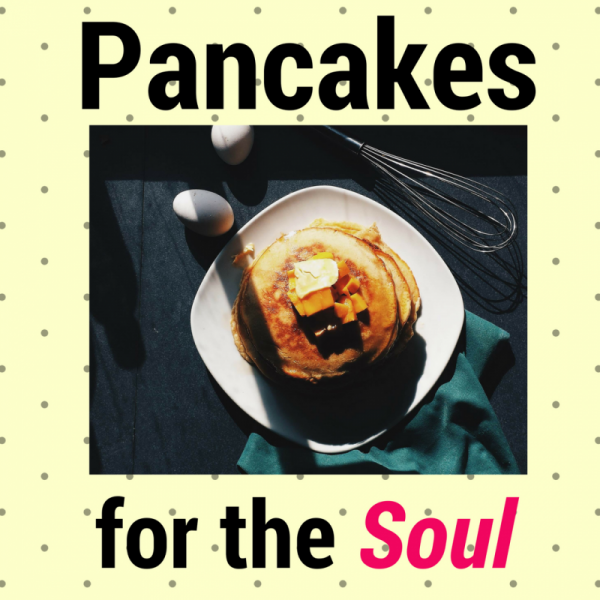With the task of creating our podcast episode, Pancakes for the Soul, I began just as most inexperienced people do when undertaking a new job: uncertainly. I had picked SoulPancake because I liked its mission and content, but I really had no idea what to say besides my own opinions. My partner, Shemi, was not familiar with the site or any of its content, so we had a bit of a learning curve to tackle. I wasn’t even sure whether or not SoulPancake was new media, but I soon realized that my lack of knowledge might not be such a bad starting place.
We did not have the luxury of framing our podcast after previous episodes since this was the first week of the podcast, but we at least had some familiarity with podcasting and had a vague understanding of what our end product might look (sound?) like.
I began by exploring the home site and gradually built an understanding of the scope of the content and substance of SoulPancake’s goals. Questions began to develop: What is the purpose of their home site, soulpancake.com? What was Rainn Wilson (the head honcho at SoulPancake) trying to accomplish? Why was SoulPancake a distributor of online content, and what advantages did they hold as such? We watched numerous interviews of Rainn Wilson and began to see his vision for a ‘social networking’ site that supported a ‘community’ of people sharing ideas.
The more we looked, the more we began to see the concepts of participatory media intertwined within the structure of SoulPancake. We tried to take as many concepts from class and address them within the confines of SoulPancake’s content and strategy, hoping to create an outline that might structure our podcast in a manner that was conversational yet concise. We wanted to create something that was engaging while also hitting a set number of informational points, a task easier said than done.
This project, maybe more than anything, challenged me to reconsider my digital citizenship. I would not have thought much about which sort of music we could use if not for Professor David’s guidance, nor been as conscious about citing sources and carefully using sound clips. I tried reaching out to SoulPancake (unsuccessfully) to learn more about the inner workings of the organization, a process which further reminded me of the opportunities and limitations of online communication.
I would be remiss if I did not mention the need for collaboration through this project as well. Shemi and I had to communicate and make many, many decisions regarding what we would talk about and what we would include in the final cut. The collaboration aspect also helped make the task far more enjoyable.
With our first podcast completed, I feel good about the work we created. From the brainstorming, the editing in garageband to the creation of the episode’s cover image, this project challenged me in a lot of different ways. I was a little overwhelmed by the length of the editing process, so I hope that I can learn to be more efficient in future projects. All things considered: I’d do it again.


Pingback:Every Frame a Painting – Writing Media New